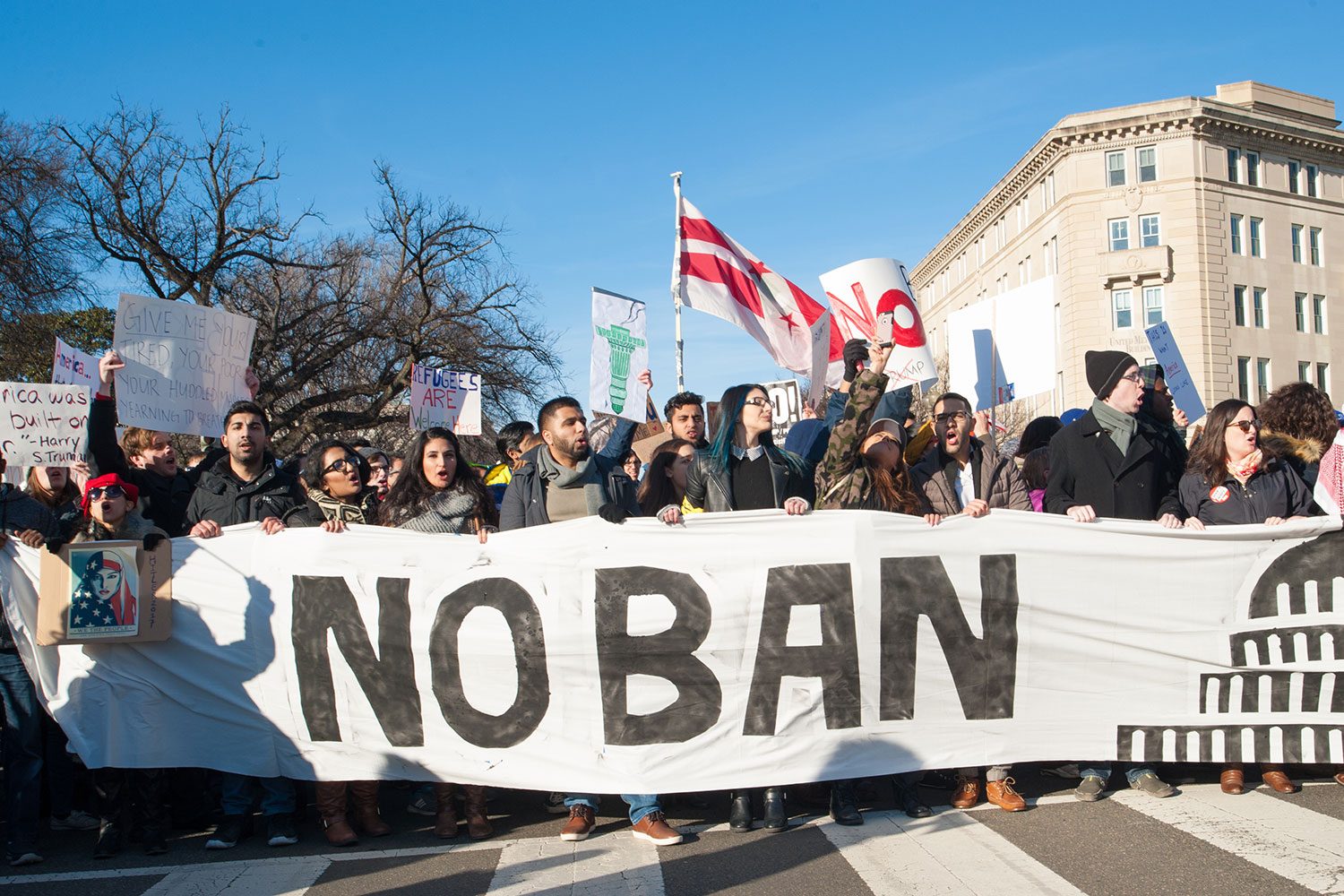On March 6, 2017, President Trump signed a revised executive order (“EO-2”), which includes the following key provisions:
- Suspends the entry of nationals from six Muslim-majority countries – Iran, Libya, Somalia, Sudan, Syria, and Yemen to U.S. for 90 days,
- Provides for case-by-case waivers of the entry ban,
- Suspends decisions on refugee applications and the travel of refugees to the United States for 120 days following the EO-2 effective date, and
- Limits refugee admissions for fiscal year 2017 to 50,000.
Exceptions:
The EO-2 further allows for the following categories of nationals from the effected countries to be excluded from the travel ban:
- Individuals in the U.S. pursuant to a valid visa on June 26, 2017;
- Lawful permanent residents of the U.S.;
- Individuals admitted to or paroled into the U.S. on or after the effective date of EO-2;
- Individuals with a document other than a visa, valid on the effective date of this order or issued on any date thereafter, that permits the individual to travel to the U.S. and seek entry (i.e. advance parole document);
- Dual nationals of a country designated under this order traveling on a passport issued by a non-designated country;
- individuals traveling on a diplomatic or diplomatic-type visa, North Atlantic Treaty Organization visa, C-2 visa for travel to the United Nations, or G-1, G-2, G-3, or G-4 visa; or
- Asylees, refugees already admitted to the U.S., or any individuals who have been granted withholding of removal, protection under the Convention Against Torture, or advance parole.
The travel ban did not initially go into effect because two federal courts blocked the measure, resulting in appeals by the government to the Supreme Court. On June 26, 2017, the Supreme Court agreed to hear the appeal over the ban, but not until later this fall.
In the meantime, the Supreme Court granted the government’s request to reinstate part of the EO-2 by allowing the ban to be enforced against people from the six affected Muslim-majority countries who lack a “bona fide relationship with a person or entity in the United States”. The Court applied the same standard to the refugee provisions – thus refugees who have a bona fide relationship with a U.S. person or entity cannot be subject to the travel ban or the FY 2017 cap on refugee admissions.
The travel ban went into effect on June 29, 2017. Despite the ban, visa interviews will continue to be scheduled for both non-immigrant and immigrant visa applications. The Applicants’ eligibility to enter the U.S. under the guidelines is subsequently determined at the visa interview by the consular officers.
There is a lot of uncertainty as to how the governmental agencies and officials worldwide will interpret the new rules; particularly when it comes to determining what would constitute a “bona fide” relationship to a person or entity, and what evidence would be required to prove such a relationship. We will continue to monitor this complicated matter and share what we learn.
For further information on Trump’s temporary travel ban or any other immigration matter, please call our experienced immigration attorneys at the Law Offices of Azita M. Mojarad, P.C.
Photo: Rena Schild / Shutterstock.com
